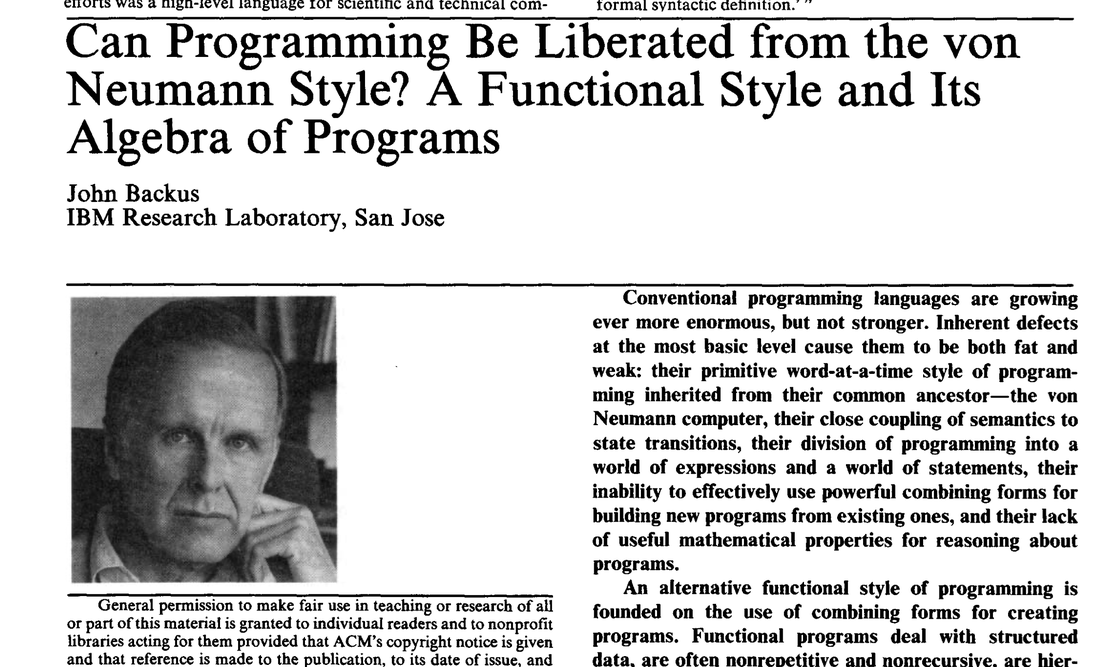
Workplace culture: is Lambda an Achilles’ heel?
- Michael Molloy
- Culture
- April 4, 2022
Microsoft’s team issued a paper to assess early cultural responses to Excel’s new Lambda: “End-user encounters with lambda…” (2022). It’s a qualitative-based paper based on early samples from social and community media. It poses the question: is the Lambda an Appollo bow or an Achilles’ heel? It covers quite a lot of concepts in a brief paper, so here are a few comments and takeaways:
While the brief conclusion is right to point out that less-expert users may encounter challenges around comprehension, the paper does not seem to help readers explore the significant crossover benefits from the coding world into the Excel end-user workplace experience. Some of these benefits are already very apparent from the responses to the research.
Sampled audience
Perhaps the sample audience was a bit “too techie”, like Hacker News and Microsoft’s own technical forums. It would be interesting to learn why Twitter was discarded or community comments from diverse and regulated associations – like CPAs/Accountants or Surveyors that handle DCFs everyday for client advice. For example, the ICAEW blog says “ [Lambda] will revolutionise how you build formulae in Excel”. This is quite some feedback from a globally trusted organisation that helps members service financial clients.
The interesting anomaly
Before 2021, you could not rock-up to the office one morning and create our own MyCashFlowFunction() for you and your team to use instantly.
The paper is certainly of interest to many observers because the worldwide spreadsheet formulae language has remained “an anomaly: the only widely-used programming language that did not support subroutine definitions since the invention of the subroutines in the 1940s” – i.e. before 2021, you could not rock-up to your office one morning and create our own MyCashFlowFunction() for you and your team to use instantly. And use seamlessly alongside your everyday ready-made commands like SUM(), AVERAGE(), etc.
Macros are horrendous for most CRE offices
Yes, you could create a workaround before 2021 via macros (via “alternative paradigms” such as VBA or Javascript in Sheets). But in the largest asset class in the world of Commercial Real Estate, only the 1% nerd category is brave enough to drop macros into a team process. This seams to be fairly universal in CRE and in many other industries.
It’s an Analyst’s right of passage to be called up by a boss and get rebuked for an IRR model projection that has gone pear-shaped. If they discover the issue was compounded by black-box macros no line manager can double-check urgently at 9PM, the Analyst is only further away from ever achieving redemption. The advice will be: keep it simple and don’t be too clever for your own good. Think about the team and commercial imperatives.
The research responses already point to a revolutionary principle: “easier to audit as the formula [the Lambda] is only defined once” – imagine that: a marvellous solution that can replace many hundreds and thousands of pasted and butchered formulae lying around typical institutional in-house DCF models.
“7% of spreadsheets contain a single formula”.
The paper mentions this fact that is making the rounds in spreadsheet land. One could argue that too much weight is being granted to the Herman and Murphy-Hill findings from Enron’s mass of office spreadsheets it left behind. But in any reputable firm, this 7% is a universe away from the genuine spreadsheet concerns involving thousands of formula used by diligent, long-term fund managers and advisory firms. In 7 years of seeing client spreadsheets, we have never been sent a ‘single formula’ spreadsheet as an example.
So shouldn’t we discard this from any Lambda discussion? Andrew Gordon and Simon Peyton Jones rightly call Lambda “the ultimate Excel worksheet function”. The point is that Lambda can handle concerns beyond the single ready-made functions. A single formula workbook is not statistically relevant for Lambda purposes. Such simple workbooks are the coding equivalent of any novice downloading Apple’s XCode in minutes and creating their first iPhone app to say ‘Hello’ on screen. Neither is relevant “programming” or Excel “usage” for this topic.
“It can be an Achilles’ heel, weakening comprehension and community participation”
Is this a new weakness for Excel due to Lambda? There are a couple of factors already in play in real estate funds, especially when in-house models easily involve a 1,000 or even 15,000+ cells.
Firstly, detailed Excel DCF template comprehension in a CRE team is already a rare currency. Many may know how to adjust the inputs, but few have comprehension of the underlying mechanics of the model and cell-by-cell formulae logic. The key-person authorship risk is typically massive.
Secondly, just opening Excel on a good day in CRE investment tends to limit community participation. However, there is a universal institutional team respect for the final due diligence numbers run through Excel. To the extent that any new feature can reduce the need for corrections, maintenance and auditing, it should be welcomed hands-down for optional usage.
Some easy wins for Excel design
User feedback has already pointed out that the Name Manager doesn’t “cut it”. Like the formula line bar we all use, trying to create or edit a long Lambda statement in a single line bar is not great. You can’t press enter easily, or move around the text. Even a Twitter user-interface on a cell phone feels more generous and spacious to edit 140 characters.
Excel Labs add-ins and other solutions to see and easily edit Lambda text will no doubt be welcomed by end-users, and have already improved since the paper was published.
Unfortunately, the fact these are easy wins is because of the job done to Excel’s interface. Perhaps Microsoft does not fully digest its own insights about end-users being, in essence, coders. These users need a properly-designed interface. Just imagine if one ounce of the effort Microsoft places on designing proper environments for programmers (e.g. Visual Studio), were focused on creating a proper Ribbon Bar experience to drive and control the Lambda feature.
Translating feedback from users
The feedback from users already points to software engineering benefits that programmers already experience in the coding world. Is it not incumbent on researchers to address what this means for typical end-users who are not consciously “debugging, testing or auditing” in an engineering sense? Don’t powerful debugging-friendly features have powerful consequences for the untrained “typically task-oriented” user?
One could argue that introducing subroutines into spreadsheet language opens up amazing opportunities for the Separation of Concerns. Any macro users, power Excel users or occasional spreadsheet operators can benefit from this new dimension. For starters, we can write functions according to our own industry terms to label our concerns (e.g. =Rent_Review() or =Fixed_Uplift() for real estate). It is entirely realistic that the new opportunities for the separation of concerns does not need to be taught in order for many task-oriented users to adopt the benefits intuitively.
For decades there has been an unbridgeable gulf between a typical function user and power users. Lambda functions start create a sort of middle ground where the average user and power macro-player can collaborate for the first time. The ‘pair programming’ principle from Agile and Scrum principles suddenly becomes a possibility in the financial workplace. Imagine a Vice President (who has only used Excel functions throughout their career) and a wizzy Analyst (who can write macros and very complex nested formulae) can work on function problem together… within a familiar environment: in the same rows and cells.
These positive influences from the coding world into the office end-user’s orbit should be highlighted, championed and celebrated going forward. There is a hint of this positive trend in one of the slightly twisted comments quoted from Hacker News: “…Excel becomes even more of a slippery slop towards programming generally, which can only be a good thing.”
Workplace participation
As alluded to above, when the office nerd starts playing with Macros, workplace community participation is already at near zero. While Lambda can also be poorly used, the difference is that, when it is used well, it can start to fill a gap between sporadic users and power users.
Another concept familiar to coders is Unit Testing. This principle can also enter the financial services workplace. Vice President Joe Doe cannot check or review Macro libraries. But he can certainly try and check one of Luke’s new Lambda creations: “TotalRevenueSalesInQ4OfThisYear()”. Joe can check it is working by using different Date and Sales example values into the function. Joe, in turn, can do his usual filtering and subtotalling via ‘manual’ Excel to check if Luke’s shorthand Lambda is accurate and works each time.
An Achilles’ heel for an Iron Man power suit
As for the focus on any Achilles’ heel: let’s remember that the great warrior only had a relative small weakness… he was held by his ankle and dipped into the river to give him superpowers. We must not forget that Lambda is a power feature in the spreadsheet world, “the ultimate Excel worksheet function”. A thread of confidence should underpin the exploration of the opportunities ahead offered by Excel Lambda, while never forgetting the risk-management issues that are already at stake today in complex institutional models.
Overall the paper seems to be posed in a slightly timid tone and may even stretch some qualitative weightings to sound academically objective on the back of admittedly slim and early feedback. Perhaps Stan Lee’s more modern 1962 reference is appropriate for the Hacker News generation: with great power, comes great responsibility.
For more information, see Microsoft paper: “End-user encounters with lambda abstraction in spreadsheets: Appollo’s bow or Achilles’ heel?


